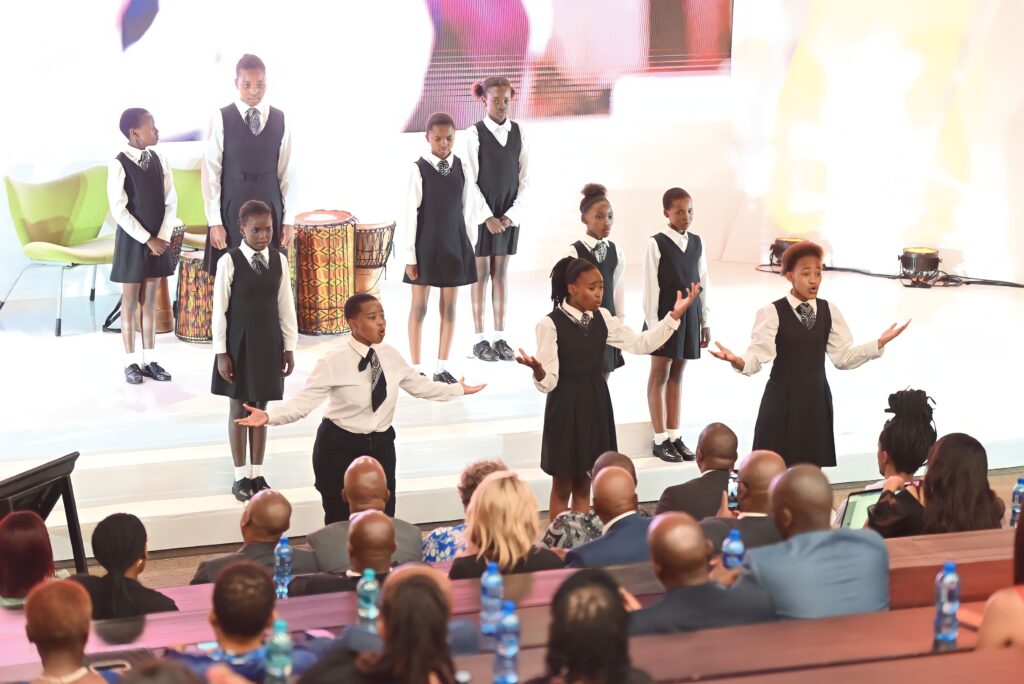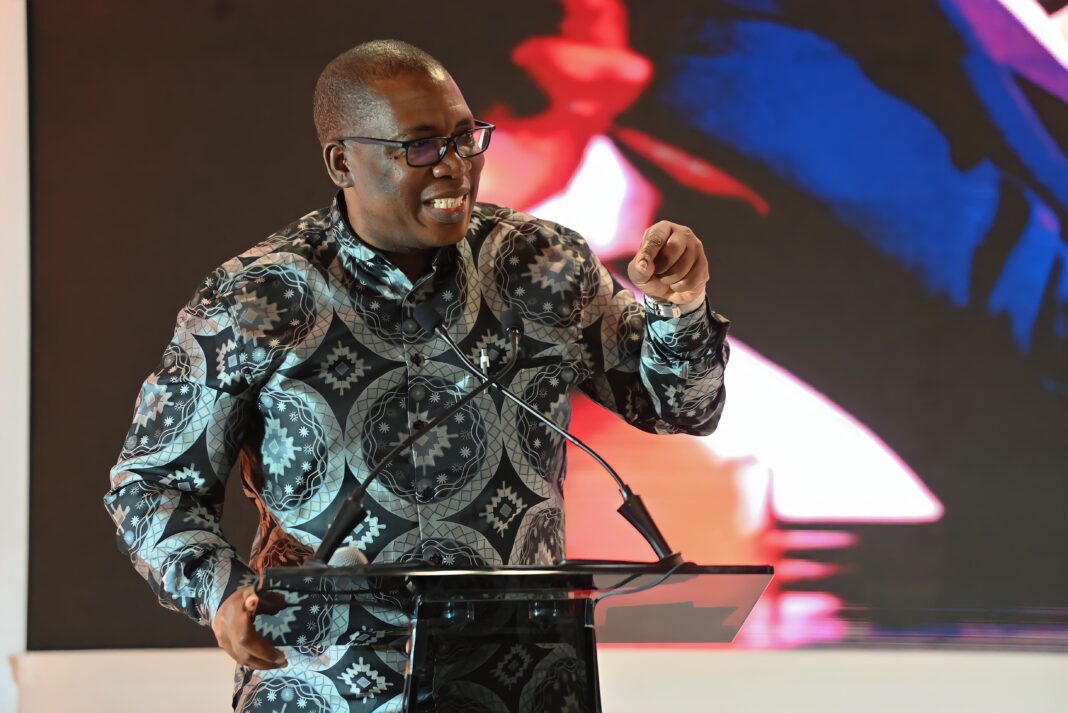Dineo Bendile
Gauteng Premier Panyaza Lesufi has called for the creation of a singular matric final exam, that will be written by all learners regardless of whether they are private or public school educated.
Lesufi says the current separation and the existence of both the Independent Examination Board (IEB) exam and the National Senior Certificate (NSC) exam is an example of the continuation of the apartheid education system, through the separation of classes.
“This thing of an IEB examination for the rich and another examination for the poor must come to an end. We must have one examination for all our children in our country.
“There is no reason why some children should write IEB, [and] there is no reason why others should write the National Senior Certificate, but they will go to the same lecture room, to the same university,” says Lesufi.
Lesufi was speaking on Friday at the 10th annual Matthew Goniwe Memorial Lecture held at the Riversands Incubation Hub in Fourways.

The event is hosted by the Matthew Goniwe School of Leadership and Governance (MGSLG) as a remembrance of the anti-apartheid activist, who fought against the apartheid government’s enforcement of Bantu Education in favour of quality education for all.
Lesufi points out that the segregation of the IEB and NSC exams is reminiscent of the apartheid-era education system, as it afforded privileged learners an unfair advantage in their future studies and careers.
“Others [IEB learners] have an advantage because they write early. They get their results early. They apply [to universities] early and are taken in early. And we [NSC learners] have to come later. In our own country? It must not happen.
“We must remain firm in our beliefs. Every South African must write the same examination to go to the same universities. And if we fail to do that. We would have betrayed people like Matthew Goniwe”.
Lesufi, who is the former MEC for Education in Gauteng, also raises issues with the quality of teaching provided to learners attending schools in previously disadvantaged areas such as townships.
For the Premier, clear differences in the quality of teaching provided in private and public schools, particularly those in townships, is another example of how the patterns from South Africa’s unjust history are continuing in present-day education.
The Matthew Goniwe School of Leadership and Governance (MGSLG) serves as the training wing of the Gauteng Department of Education (GDE), providing courses in teacher development, Early Childhood Development, ICT and e-learning and School Governance.
The organization has now set its sights on transitioning from being just a training agency under the GDE, to becoming a fully-fledged higher education institution with a national footprint.

Lesufi has congratulated MGSLG for the work it has done to date, and says the next challenge would be for the institution to address the inconsistencies in the quality of teaching being provided to learners.
“All teachers in this country are trained from the same institution(s). There is no university that prepares teachers for private school. There is no university that prepares teachers for former model-c schools, there is no university that prepares teachers for township schools. All teachers are trained from the same pot, but the outcomes are different when they are deployed. It must come to an end.
“If you [teachers] are trained from the same pot the outcome must be the same. And therefore Matthew Goniwe [School of Leadership and Governance], you should be that first institution that will train teachers and [ensure that] all the teachers trained by you give the same output”.
On a positive note, Lesufi is pleased with the adoption of the Basic Education Laws Amendment (Bela) Bill, which introduces penalties for parents who do not ensure their children are in school and stipulates that a school’s language policy should consider the needs of the wider community.
Lesufi says the new guidelines on language also means that schools could no longer reject learners on the basis of language, a practice that has commonly been reported at Afrikaans-medium schools.
Calling on all leaders in the education sector to apply the guidelines of the Bill in order to honour the memory of activists like Mathew Goniwe, who fought for the education many enjoy today, Lesufi says: “They [anti-apartheid activists] can rest in peace knowing that we will implement that Bela Bill and we must not turn back.
“You will be cowards MECs, you will be a coward if you are a minister, you will be cowards if you are principals or SGBs, if you can’t implement that bill so that our children can finally be free”.

INSIDE EDUCATION







